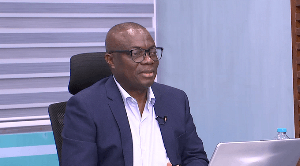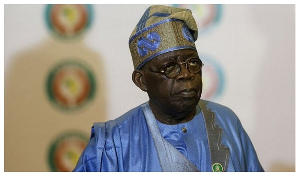Business News of Friday, 28 February 2020
Source: GNA
Ghana’s industrial drive given wide-ranging analysis
Ghana’s efforts to put its economy on a more sustainable path by introducing a raft of wide-ranging reforms across the banking sector are mapped out in a new report.
The Report by the global research and advisory firm Oxford Business Group (OBG), Ghana 2020 charts the role that the country’s three Eurobond offerings played as part of a broader, ongoing drive to stabilise the cedi and boost foreign exchange reserves.
A statement issued in Accra by the Group and copied to the Ghana News Agency in Accra on Thursday said it also tracks the progress made in reducing the deficit, which fell to 4.2 per cent of GDP in 2019, on the back of measures brought in to improve fiscal discipline and restore macroeconomic stability.
The extractive industries play a crucial role in Ghana’s economy, with gold and crude oil, its top exports in value.
OBG examined the positive impact that 1.5-billion barrels of newly discovered oil was expected to have on the economy, adding to reserves estimated at 660 million barrels in 2018.
It also explored the development underway in the mining and quarrying sector, which contributed $4.2 billion to the economy in 2018, up 13.3 per cent year-on-year, buoyed by higher commodity prices, growing global demand and support from the government.
In addition, OBG considers the digital drive underway in Ghana, as the mobile money market gains momentum and more public services move online.
One of the chapter’s highlights was a roundtable, in which industry leaders share their thoughts on a range of topical issues related to Information Communication Technology.
According to the statement, Mr Oliver Cornock, the Editor-in-Chief of OBG said the report showed that as Ghana’s rich resource base and diversification efforts to date had helped it to become one of the fastest-expanding economies in Africa, efforts to ensure the benefits of future growth were felt more widely and were gaining pace.
“Ghana’s economy grew by an estimated 7.5 per cent in 2019, driven largely by double-digit expansion in oil and gas GDP,” the statement said.
The statement said, “The introduction of several targeted programmes aimed at increasing local industrial capacity and boosting agricultural value-added, reflects the growing role that industry and services are playing in this strategically important regional market.”
The report was produced in collaboration with the Ghana Investment Promotion Centre and the Association of Ghana Industries with contributions coming from Temple Investments, PwC and B&P Associates.
The report also contained a viewpoint by President Nana Akufo-Addo, together with a detailed sector-by-sector guide for investors, which also features a wide range of interviews with other high-profile personalities, including Mahamudu Bawumia, Vice President of Ghana; Ernest Addison, Governor, Bank of Ghana; Kevin Okyere, CEO, Springfield Group; Edmund Poku, Managing Director, Niche Cocoa; and Kojo Aduhene, CEO, LMI Holdings.












